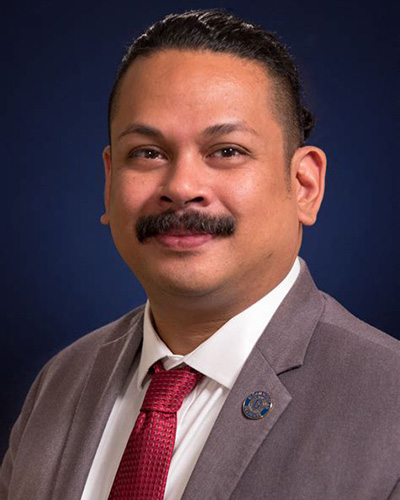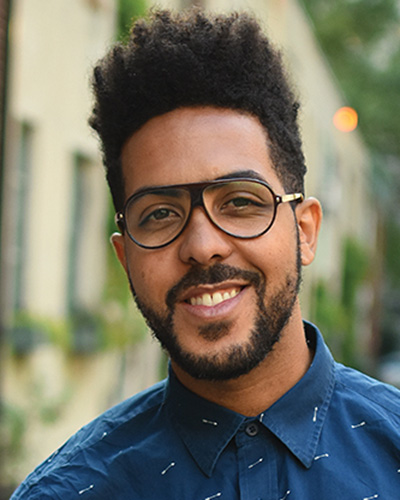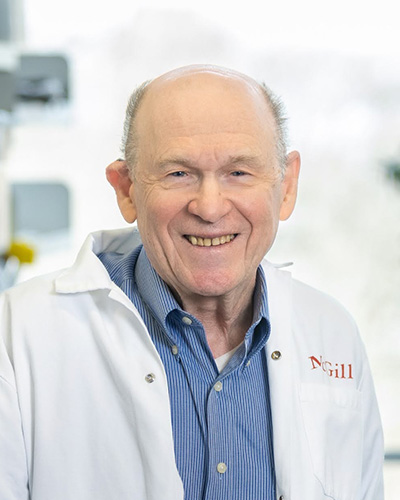Silva, Damo win diversity awards; Sonenberg named to hall of fame
Silva, Damo win diversity leadership awards


American Society for Biochemistry and Molecular Biology members Steven Damo and Gustavo Silva are among the 25 researchers selected to receive the first Science Diversity Leadership Awards, a new funding opportunity launched by the Chan Zuckerberg Initiative and the National Academies of Sciences, Engineering and Medicine.
Damo is the chair and an assistant professor of life and physical sciences at Fisk University. He is being recognized for his project titled, “Structure-Function Studies of Metal Efflux in Group B Strep,” which will elucidate the biochemical properties of a bacterial zinc efflux protein with a prominent role in adverse pregnancy outcomes. The Damo lab studies how metals modulate protein functions. Damo helps write and grade the ASBMB accreditation exam, and Fisk was the first historically Black institution to earn ASBMB accreditation.
Silva is an assistant professor of biology at Duke University. He is being honored for his project titled, “Deciphering the Functional Ubiquitinome in Health and Disease,” which will study how ubiquitin signals determine neuronal physiology and proteostasis. The Silva lab is interested in how cells respond to stressors that are common in inflammation and diseases. Silva is also a member of the ASBMB Maximizing Access Committee.
Both investigators prioritize diversity, equity and inclusion as well as training the next generation of scientists at their institutions. They have an outstanding track record of research, mentoring, teaching, and outreach.
The Chan Zuckerberg Initiative and the NASEM are recognizing the Science Diversity Leadership Award recipients for their scientific and mentoring achievements. Each award winner will receive $1.15 million over five years to support research programs and outreach, mentoring and teaching activities.
Sonenberg named to hall of fame
Nahum Sonenberg has been inducted into the Canadian Medical Hall of Fame for his discovery the elF4E protein and his work to establish the field of translational control in medicine.

Sonenberg is a professor of biochemistry at McGill University. The Sonenberg lab studies the molecular basis of protein synthesis control and its importance in disease. In a recent discovery, the lab showed that inhibiting eIF4E phosphorylation reduces tumor growth and metastasis. Sonenberg is collaborating with the pharmaceutical industry to translate this discovery for use in treating patients. In addition, the lab examines mechanisms of neuronal translational control of learning and memory and in neurodevelopmental and neurodegenerative disorders.
Sonenberg earned his Ph.D. in biochemistry from the Weizmann Institute of Science In 1976, and then completed postdoctoral training at the Roche Institute of Molecular Biology in Nutley, NJ. He has received the Robert L. Noble Prize of the National Cancer Institute of Canada, the Killam Prize for Health Sciences, the Gairdner Foundation International Award, the Rosenstiel Award, and the Wolf Prize in Medicine. In 2006, he was elected a fellow of the Royal Society, and he was given the title of Officer of the Order of Canada in 2010. He is an international member of both the National Academy of Medicine and the National Academy of Sciences, a fellow of the American Association for the Advancement of Science and a member of the American Academy of Arts and Sciences. He has mentored more than 160 graduate students and postdoctoral researchers.
The six 2023 Canadian Medical Hall of Fame inductees will be honored in June during a ceremony at Dalhousie University in Nova Scotia.
Enjoy reading ASBMB Today?
Become a member to receive the print edition four times a year and the digital edition monthly.
Learn moreGet the latest from ASBMB Today
Enter your email address, and we’ll send you a weekly email with recent articles, interviews and more.
Latest in People
People highlights or most popular articles

Building a career in nutrition across continents
Driven by past women in science, Kazi Sarjana Safain left Bangladesh and pursued a scientific career in the U.S.

Kiessling wins glycobiology award
She was honored by the Society for Glycobiology for her work on protein–glycan interactions.

2026 ASBMB election results
Meet the new Council members and Nominating Committee member.

Simcox wins SACNAS mentorship award
She was recognized for her sustained excellence in mentorship and was honored at SACNAS’ 2025 National Conference.

From humble beginnings to unlocking lysosomal secrets
Monther Abu–Remaileh will receive the ASBMB’s 2026 Walter A. Shaw Young Investigator Award in Lipid Research at the ASBMB Annual Meeting, March 7-10 in Washington, D.C.

Chemistry meets biology to thwart parasites
Margaret Phillips will receive the Alice and C. C. Wang Award in Molecular Parasitology at the ASBMB Annual Meeting, March 7-10 in Washington, D.C.
